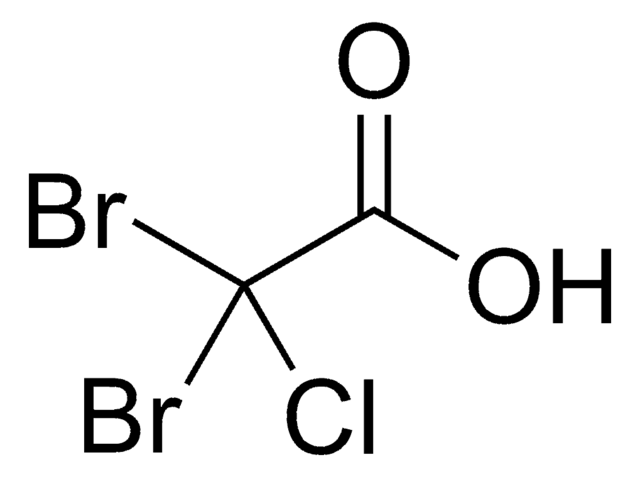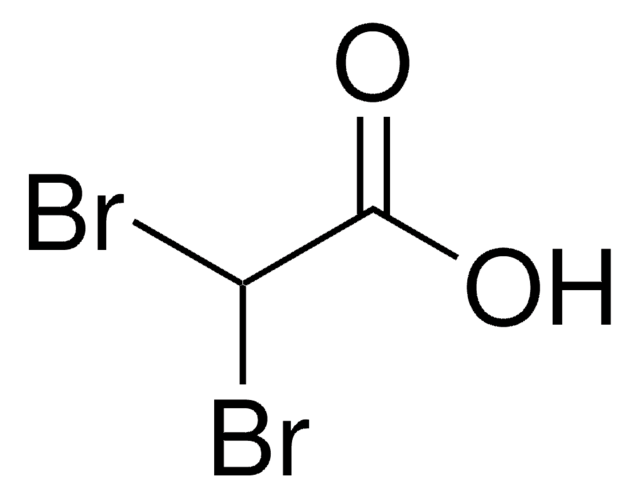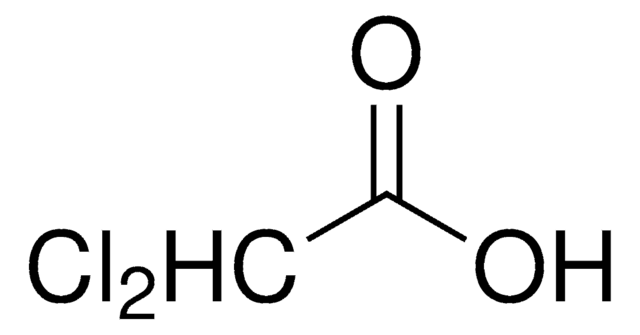442499
Bromodichloroacetic acid
analytical standard
Sinonimo/i:
Bromdichloroacetic acid
About This Item
Prodotti consigliati
Grado
analytical standard
Livello qualitativo
CdA
current certificate can be downloaded
Confezionamento
ampule of 100 mg
tecniche
HPLC: suitable
gas chromatography (GC): suitable
Punto di fusione
69-72 °C (lit.)
applicazioni
environmental
Formato
neat
Temperatura di conservazione
2-30°C
Stringa SMILE
OC(=O)C(Cl)(Cl)Br
InChI
1S/C2HBrCl2O2/c3-2(4,5)1(6)7/h(H,6,7)
XSWVFEQKZFUULO-UHFFFAOYSA-N
Cerchi prodotti simili? Visita Guida al confronto tra prodotti
Descrizione generale
Sigma-Aldrich offers bromodichloroacetic acid for a variety of applications that include, but are not limited to, environmental, food and beverage, forensics, petrochemical and pharmaceutical analysis.
Applicazioni
Avvertenze
Danger
Indicazioni di pericolo
Classi di pericolo
Acute Tox. 4 Dermal - Acute Tox. 4 Inhalation - Acute Tox. 4 Oral - Eye Dam. 1 - Skin Corr. 1B
Codice della classe di stoccaggio
8A - Combustible corrosive hazardous materials
Classe di pericolosità dell'acqua (WGK)
WGK 3
Punto d’infiammabilità (°F)
Not applicable
Punto d’infiammabilità (°C)
Not applicable
Dispositivi di protezione individuale
Eyeshields, Faceshields, Gloves, type P3 (EN 143) respirator cartridges
Scegli una delle versioni più recenti:
Possiedi già questo prodotto?
I documenti relativi ai prodotti acquistati recentemente sono disponibili nell’Archivio dei documenti.
I clienti hanno visto anche
Il team dei nostri ricercatori vanta grande esperienza in tutte le aree della ricerca quali Life Science, scienza dei materiali, sintesi chimica, cromatografia, discipline analitiche, ecc..
Contatta l'Assistenza Tecnica.











